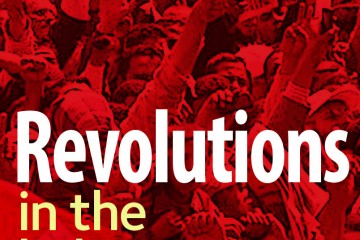
Bahrain beyond 2011: an economy on the upswing?
The decision taken by France’s Credit Agricole and Japan’s Tokyo-Mitsubishi bank to leave Bahrain following the unrest in 2011 sparked widespread fears of a mass exodus of financial institutions and led to a slump in investor confidence, casting a shadow of doubt over the performance of Bahrain’s economy. However, three years later, these initial fears seem rather misplaced. Despite a drop in investor confidence, Bahrain’s financial sector has remained intact, and economic growth has rebounded to pre-2011 levels. In the 1980s, in the wake of the Lebanese Civil War, Bahrain established itself as a regional financial center. In recent years, Bahrain has faced intense competition from Dubai and increasingly Qatar, but it has proven resilient due to its solid regulatory …
Justice and Gadhafi’s Fight to the Death
Everyone wants to see wrongdoers punished. But safe exile for bad rulers is often the least worst option. The violence in the Ivory Coast that has left more than 1,300 dead since last November’s presidential election may soon be coming to an end. Incumbent President Laurent Gbagbo, who refused to cede power after losing in the polls to Alassane Ouattara, is reportedly negotiating the terms of his surrender after a week-long offensive by pro-Ouattara forces. What’s puzzling about how this conflict is ending is why Gbagbo didn’t leave sooner, especially after African Union leaders had offered him immunity several times if he agreed to go into exile in South Africa. With 80% of Ivorian territory taken by pro-Ouattara forces and …
History Repeating? Cairo 2011 and the lessons from Tehran 1978
While again hundred thousands of Egyptians show their defiance of the old regime at Cairo’s Tahrir Square and worker protests have broken out in several Egyptian cities, Washington and London still follow a pipe dream of a gradual transition from Hosni Mubarak to a more or less democratic, yet by all means secular new government. However, the web of Western diplomatic moves might turn into a Gordian knot as Egypt 2011 shows analogies to Tehran in 1978. Nations resemble Tolstoy’s families: every one is unhappy in its own way. And yet, when people’s harm escalates and they take matters in their own hands, the differences fade and clear patterns emerge. One such pattern stipulates that revolutions are rarely isolated instances …









